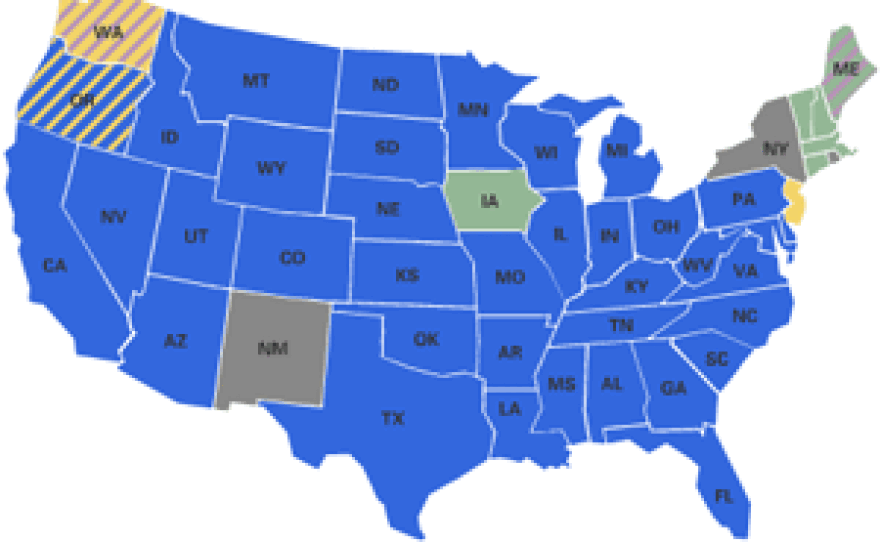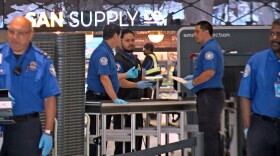After a months-long break, a landmark federal trial challenging California's ban on same-sex marriage ends Wednesday with closing arguments.
The outcome could have wide-ranging implications.
It started back in November 2008 when California voters narrowly passed Proposition 8, putting an immediate end to gay and lesbian weddings in the state. After the state Supreme Court refused to strike down the measure last year, two same-sex couples filed a lawsuit in federal court.
To plaintiff Paul Katami, the issue is simple -- and personal.
"We want to be married. We have the right to be married. Why can't we be married?" Katami asks.
Katami and the other plaintiffs have some high-powered legal help. Republican Theodore Olson and Democrat David Boies were both adversaries in the 2000 Bush v. Gore Supreme Court case. But now they've teamed up on behalf of gay marriage.
To Olson, the case boils down to a very simple legal principle: "The Supreme Court of the U.S. has declared again and again that the right to choose one's life companionship in the form of marriage is a fundamental right in this country," Olson says.
But so far, the high court has only applied that right to heterosexual couples -- for example, striking down a ban on interracial marriage.
Does that same right also belong to same-sex couples? That's what this case will help decide.
Making Their Cases
During 12 days of testimony, Olson and his legal team called a parade of academic witnesses. They testified about the changing nature of marriage, the history of anti-gay discrimination and the political power of conservative church groups.
Boies says Proposition 8 was based on stereotypes and anti-gay prejudice, without any legal justification.
"We've exposed publicly the fact that there simply is no basis for prohibiting gays and lesbians from getting married. It doesn't help anyone," Boies says.
Boies and Olson hope to convince federal Judge Vaughn Walker that Proposition 8 violates the 14th Amendment of the Constitution -- the right to due process and equal protection under the law.
Defenders of Proposition 8 called only two witnesses during two weeks of testimony back in January. They focused mostly on the benefits of limiting marriage to one man and one woman.

Andrew Pugno -- an attorney defending the state's ban on gay marriage -- says there are plenty of rational arguments for preserving traditional relationships.
"A same-sex couple can never offer a child both a mother and a father. And that is a reasonable reason for the people to decide to continue to keep marriage as a union between a man and a woman," Pugno says.
Implications
During the trial, Pugno and other defense attorneys complained that Judge Walker's decisions have tended to favor gay marriage supporters. In fact, at times they seemed to be putting all their chips on an appeal.
"It's not the role of the courts and it's not proper for judges to substitute their own views on these political questions for the judgment of the people. And that's really what this case boils down to: Who gets to decide?" Pugno says.
For years, gay-rights groups fought to keep same-sex marriage cases out of the federal courts for fear they'd ultimately lose if the case went to the U.S. Supreme Court.
If Walker strikes down California's ban on gay marriage, he could do it in a way that sweeps away anti-gay-marriage laws throughout the nation. But he could issue a narrower ruling, one affecting only states like California and Washington, where same-sex couples already have broad legal rights but can't get married.
In other words, Walker could decide that differentiating same-sex and opposite-sex couples in name only is simply discriminatory.
Wednesday's closing arguments will be closely watched -- but not on television. The judge rejected a request by media organizations to allow cameras in the courtroom.
Copyright 2022 KQED. To see more, visit KQED. 9(MDAzMjM2NDYzMDEyMzc1Njk5NjAxNzY3OQ001))





